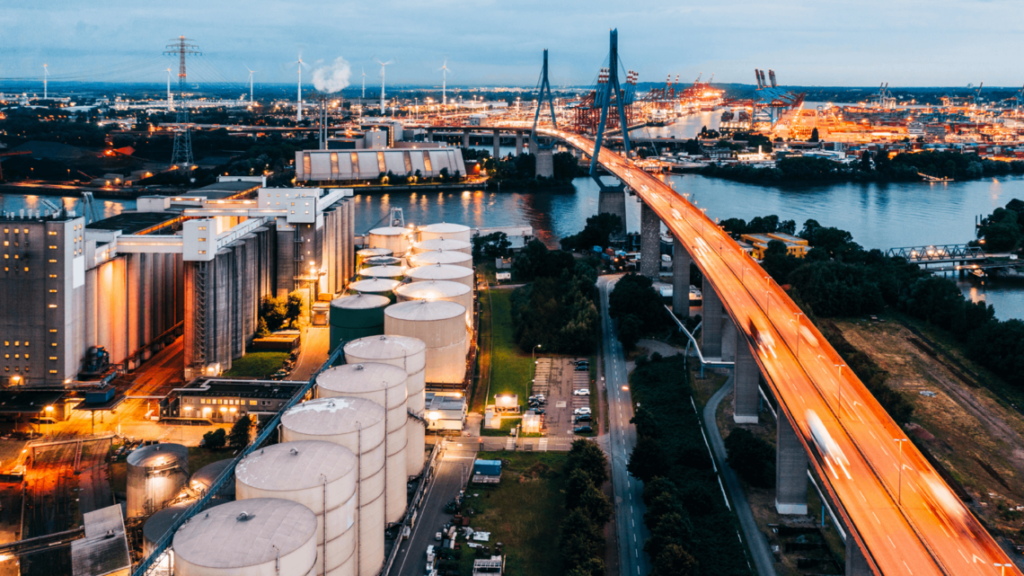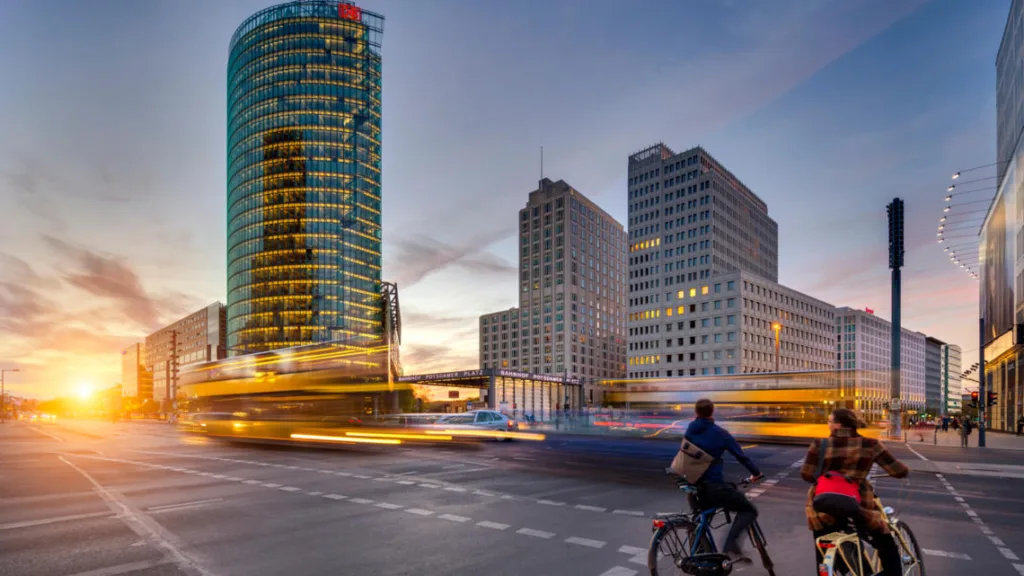Authors
Dr. Jennie Dodson, Senior Director, WBCSD (formerly Head of Mission Innovation) and Salka Sigurdardottir and Dr. Paul Durrant (Joint Heads of the Breakthrough Agenda Secretariat)
Today, at the Breakthrough Agenda Ministerial, governments welcomed a new partnership with the World Business Council for Sustainable Development to strengthen public-private cooperation to scale and speed up clean technologies to make them affordable and accessible for all by 2030.
Two years ago in Glasgow, we stood in a hall filled with 1000 people as President Biden, President Von der Leyen, Prime Minister Modi, Prime Minister Mottley and business leaders marked the launch of the Breakthrough Agenda – now backed by 56 countries covering 80% of GDP. The hall was filled with examples of transformative technology that could help to achieve the goals – electric vehicles, green hydrogen electrolyzers and more – and we were moved by the inspiring examples of the Earthshot prize winners, putting solutions into practice.
At COP26, tens of new initiatives were launched as part of the Action Agenda – the non-negotiated part of COP – including major commitments by groups of countries and businesses on deforestation, phasing out internal combustion vehicles and reducing methane emissions. These joined hundreds ofinitiatives announced at previous COPs and major climate summits. Many of these are doing significant work, but there was beginning to be a sense of ‘initiative-itis’ – questioning how each new commitment would be tracked and how to ensure the plethora of initiatives didn’t duplicate and dilute effort.
This is what made the Breakthrough Agenda a breakthrough in itself. It wasn’t the launch of another initiative or commitment but a process centered around COP summits to accelerate sectoral transitions in power, hydrogen, transport, steel, agriculture, and now buildings and cement.
It focuses on the practical actions needing strengthened international collaboration, including on standards, regulation, financial and technical assistance, market creation and innovation and crowds in more effort intoexisting initiatives to move the dial forward. To ensure accountability, progress is assessed through an annual report authored by the International Energy Agenda (IEA), the International Renewable Energy Agency (IRENA), and the UN Climate Change High-Level Champions.
At the heart of the Breakthrough Agenda is a focus on accelerating positive tipping points. For solar, wind and electric vehicles, we see that if we identify solutions, innovate, and invest until they are better and cheaper than the alternative driven by private sector investment and government policy, these can then scale exponentially. But this doesn’t happen automatically. At every stage, we have to keep solving problems, from the permitting times to get renewables on the grid to charging infrastructure for electric vehicles. The Breakthrough Agenda focuses on these exponential unlocks,which can make the transitions easier, cheaper and faster for everyone.
Breakthrough Agenda: COP26 to COP28 Recap
Since the Breakthrough Agenda was launched at COP26, there has been progress. At COP27, the first set of Priority Actions was launched, which crowded in support behind the most urgent international actions to expedite their delivery, increase their ambition and open new options for further action. And at COP28, we are seeing many initiatives and countries join up efforts and announce new collaborative progress, including:
- A multi-billion-dollar Green Public Procurement Pledge for green steel, concrete, and cement, led by the UK, Germany, Canada and the US.
- New country collaborations to help decarbonize emerging economies, including Brazil and India, with the UK, Sweden and Germany brokering international assistance spanning finance, supply chain development and technical expertise provided by partners including IEA, Green Climate Fund, CIF and WEF.
- Progress on scaling finance for low-carbon hydrogen via the creation of new matchmaking platforms to expand emerging and developing economies’ access to finance and technical support.
- The identification of a portfolio of the most viable ‘lighthouse’ projects for renewable and low-carbon hydrogen to overcome barriers delaying progress in the sector, plus a COP Presidency Joint Declaration of Intent, co-led by Germany, Namibia, and Japan, on certification to pave the way for global, cross-border trade for renewable and low-carbon hydrogen. Similarly, on steel, leading standards and industry associations announced new core principles towards aligning green steel standards.
- A roadmap for strengthening finance and technical support for Emerging Markets and Developing Economies in their transition to zero-emission vehicles in collaboration with ZEVTC member countries, including the US, UK, Canada and India, with new country cluster initiatives and an expanded Rapid Response Facility.
But we need to go further, faster. As the Club of Rome highlighted earlier this year, the Breakthrough Agenda is the type of mechanism the world desperately needs alongside the consensus-based process of the main UNFCCC negotiations to accelerate real economy delivery, focused on targeted deliverables with a broad base of multistakeholder involvement.
The UNFCCC’s Global Stocktake Synthesis Report emphasized the need for stronger cooperation between governments and non-party stakeholder to accelerate progress. As part of the response to that need, the UAE COP President launched the new 2024 Emirati Breakthrough Actions at COP28 and this framework is designed to enhance ambition every year from COP to COP.
WBCSD’s Role in Advancing the Breakthrough Agenda
This is why we are delighted that today the Breakthrough Agenda is announcing a partnership with the World Business Council for Sustainable Development to strengthen public-private action-orientated cooperation. As an NGO convening a CEO-led community of over 220 of the world’s leading businesses working across all sectors, with a global network in 60 countries, and as the Marrakech Partnership Focal Point for Industry, WBCSD ideally placed to support the Breakthrough Agenda to strengthen business engagement to accelerate sectoral transformations.
This will build on WBCSD’s existing engagement, including contributing to the delivery of priority actions for the Road Transport Breakthrough, including working with the ZEV Transition Council on the ZEV Emerging Markets Initiative and the Collective for Clean Transport Finance to scale finance and the work on charging infrastructure. As co-chair of the Steering Committee of the Global ABC, WBCSD is also working to ensure private sector efforts are aligned with the new Buildings Breakthrough.
Through this partnership, WBCSD will support co-lead governments and the Breakthrough Agenda Secretariat by providing a business perspective on the priorities of the Breakthrough Agenda, supporting the coordination of private sector initiatives and identifying where further private sector action can help to deliver the Breakthrough Agenda Priority Actions as well as ensuring businesses deliver on their commitments through robust corporate performance and accountability structures.
We know that we have far to go. This is the start of a partnership that we hope will exemplify how business and government cooperation can catalyze accelerated transformation.
Quote:
I’m thrilled that WBCSD is joining forces with the Breakthrough Agenda to enhance public-private collaboration. The Breakthrough Agenda is a crucial framework aimed at addressing global challenges across sectors – whether it’s setting hydrogen standards or facilitating investments in renewable energy – that will empower businesses to expand markets for sustainable solutions. The Global Stocktake Synthesis report emphasized the urgency of increased collaboration between public and private sectors. That’s precisely why WBCSD, harnessing business-driven transformative solutions, pledges to stand as a partner to governments. Our commitment is to make sustainable solutions accessible, attractive, and affordable for all by 2030.
– Peter Bakker, President & CEO, WBCSD
We are excited that WBCSD is now an official partner of the Breakthrough Agenda. Strengthening public-private cooperation is key to scale and speed up clean technologies to make them affordable and accessible for all by 2030. This partnership offers an opportunity to provide the business perspective and identify where further private sector initiatives can help deliver the Breakthroughs
– Salka Sigurdardottir and Paul Durrant, Joint Heads of the Breakthrough Agenda Secretariat
Outline
Related
Content

The Green Deal Industrial Plan: Flipping the Switch on net-zero industry
29 May, 2023

Accelerating electric infrastructure: an integrated approach to decarbonization is key
19 September, 2022

Insider Perspective: BIO World Congress for Industrial Biotechnology
28 July, 2017

